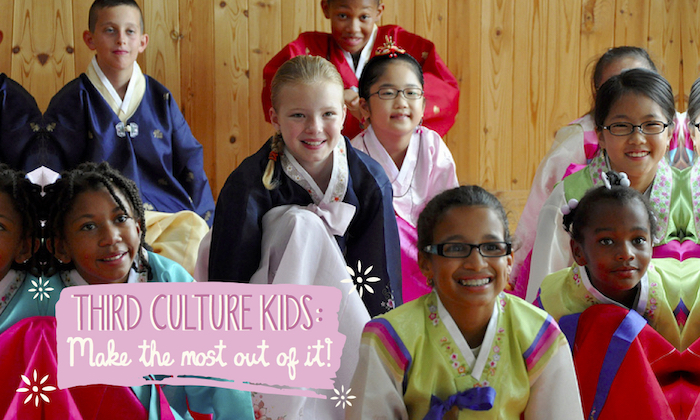
 Post Category - ParentingParenting - Post Category - Toddler & PreschoolerToddler & Preschooler - Post Category - Older KidsOlder Kids
Post Category - ParentingParenting - Post Category - Toddler & PreschoolerToddler & Preschooler - Post Category - Older KidsOlder KidsA leading expert on third culture kids is coming to Singapore! Find out what makes TCKs tick…
We celebrate third culture kids here at Sassy Mama, but author and international speaker (and TCK himself) Christopher O’Shaughnessy knows from first hand experience that being a TCK poses a unique set of challenges, particularly once kids are ‘on their own’ or off to university in what’s ostensibly their ‘home’ country. In advance of his speaking tour in Singapore from 3-7 October, we chatted about why TCKs are the global citizens of the future, why Singapore is a fabulous place for kids to grow up in, and what parents can do to support their third culture kids. Read on for more info on where you can find him during his stops in Singapore!
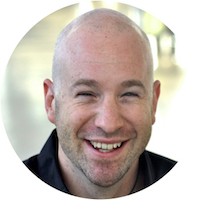
What is your own background as a TCK?
I’m a second generation TCK. My father is American, was born in Germany, spent time growing up in France, then the U.S., and joined the U.S. military. He spent the majority of his 30-year military career overseas (mostly Europe, but also in Southeast Asia and the Middle East). My mother is also American, and was born in the U.S., but after marrying my father at age 18, spent much of her life overseas. I was born in the UK, and have spent most of my life in the UK, Europe, and the Middle East with frequent visits to the U.S..
What inspired you to start speaking on this topic?
The first time I heard the term TCK wasn’t until I was in university. I was working with an organization that focused on U.S. military teens stationed overseas and they had a seminar on the topic. The way it was presented was informative – and I recognized that I was a TCK, but it almost left me with the impression that this was some sort of disadvantage or even illness. My curiosity piqued, and I did further research. For my university dissertation, I conducted a study looking into how many of my fellow military brats ended up back in the military after leaving school. I found a huge percentage of them did – but most had done so in contrast to their previously stated desire not to re-associate with military. It turned out the experience of going to college in the U.S. after having grown up overseas left many military brats feeling out of touch and alone.
As a result, many changed their minds and returned to the military because it was at least familiar. I realized that military brats, like many TCKs, may have a harder time explaining their cultural makeup, but possess incredible adaptability and other useful skills. I wanted to do something to help give TCKs the framework and language to make the most of those skills rather than be hindered by a lack of understanding and identity.
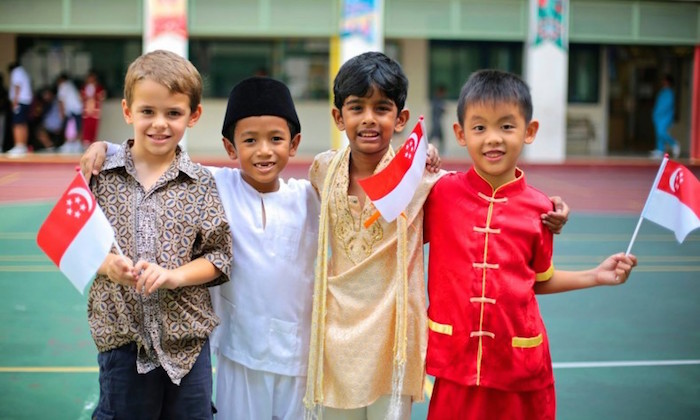
What would you say are three benefits for TCKs growing up in an environment like Singapore?
Singapore is an incredibly cosmopolitan city – spending time amidst so many cultures (especially during formative years) is a great asset in that it helps TCKs develop a broad worldview. They are more likely to thrive in and draw from the diversity around them rather than be challenged by it. Similarly, the network of friends that TCKs are able to establish in a place like Singapore is truly globally connected – they’ll have a collection of contacts that when they become adults that many businessmen would envy! Finally, Singapore is a fast-paced environment. That, combined with the dynamic nature of the international school culture means that TCKs have the opportunity to acquire very valuable change-management skills that will serve them well in many aspects of life.
What are some unique challenges TCKs face that parents should look out for?
One of the biggest challenges faced by TCKs is that of how to properly deal with grief. The regularity of change and transition that TCKs face means that while everyone must deal with grief, TCKs tend to have to do so more frequently and with less recovery time. This makes it incredibly important for TCKs to learn how to express and deal with grief arising from loss of consistency, friends, familiarity, etc. so that feelings of loss doesn’t get stored up and develop into harmful behaviors.
Another challenge often faced by TCKs is a lack of conflict resolution skills. Because of the inconsistency and transition inherent in the TCK experience there is less opportunity to deal with conflict, as avoidance is often an easier option. People who grow up with more consistency have opportunities to practice conflict resolution built into their environment. Because that’s lacking from the TCK environment, these skills need to be taught far more intentionally.
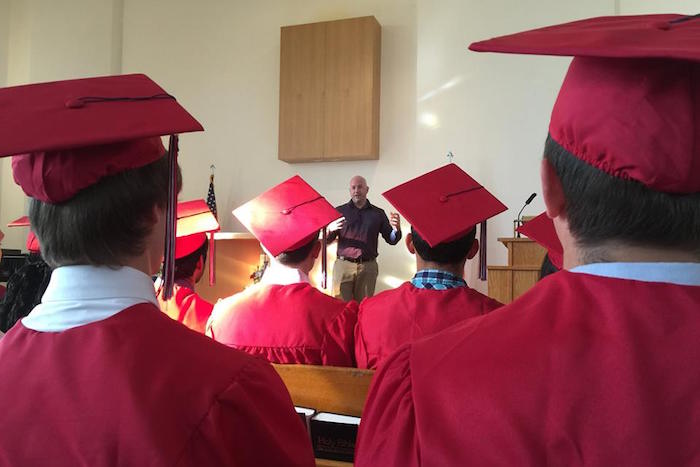
What do you speak about?
I get to speak to students, parents, and teachers at international schools about the experience of growing up as a Third Culture Kid (TCK – generally defined as someone who grows up in a culture other than their parents culture(s) amidst transition). I use a lot of stories, and rely on a fair amount of laughter too (we remember things better if laughter is involved!). My hope is to help provide the language and framework to process the TCK experience, become aware of the challenges it brings and make the most of the skills it provides. That and I may be hoping to raise an army of TCKs for a benevolent attempt at world domination.
Why are TCKs important?
It’s been said that TCKs are the prototype citizen of tomorrow… that was said a while back and tomorrow is here. Thanks to globalization and all sorts of other trends, the challenges TCKs face are becoming the challenges everyone faces. The skills that TCKs possess are the skills everyone needs. Helping TCKs become well adjusted individuals isn’t just good for them, it’s good for the whole world!
What’s a common misunderstanding or misconception you encounter?
I find that often times people underestimate the cultural significance of being part of the international school community. Even if a student never moves and stays in the same country for their entire school career, if they attend an international school, they share the TCK experience. They may not move, but the people around them do, they experience a multitude of cultures at school and then a different one at home. In essence, you don’t have to move to be a TCK and share in their challenges and strengths.
![]()
Thanks Chris! You can catch Chris in Singapore from 3-7 October speaking at the following schools (contact schools for more info):
Monday 3 October: St. Joseph’s Institution International
Tuesday 4 October: Stamford American International School
Wednesday 5 October: Dulwich College
Thursday 6 October: UWC South East Asia (East)






 View All
View All



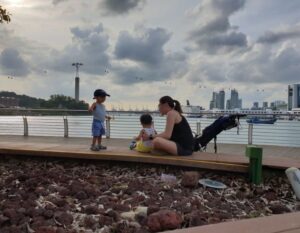
 View All
View All
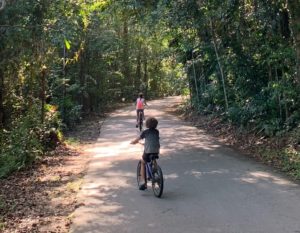


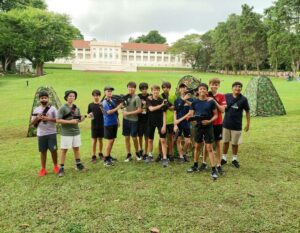






 View All
View All


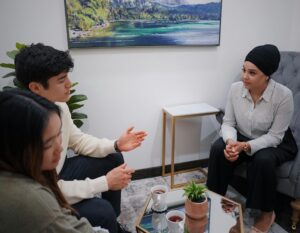


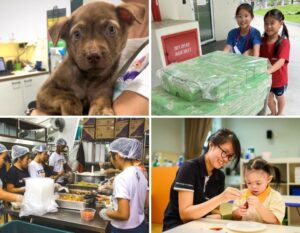
![[𝗡𝗘𝗪] 𝗣𝗮𝘀𝗶𝗿 𝗥𝗶𝘀’ 𝗕𝗿𝗼𝗻𝘁𝗼𝘀𝗮𝘂𝗿 𝗣𝗮𝗿𝗸 𝗶𝘀 𝗕𝗔𝗖𝗞. 𝗦𝗮𝗳𝗲𝗿 & 𝗙𝗨𝗟𝗟 𝗼𝗳 𝗗𝗶𝗻𝗼-𝗦𝗶𝘇𝗲𝗱 𝗙𝘂𝗻! 🦕🦖
A dinosaur you can climb into, a tail slide you can zoom down, and plenty of spots for kids to swing, bounce, and explore? Yeap, it’s a full-on dino adventure. After being closed for a major revamp, Brontosaur Park is now officially open (and safe!) for little adventurers to run wild.
Comment “DINO” or hit the link in bio for more epic outdoor playgrounds in Singapore!
𝗪𝗵𝗮𝘁 𝘄𝗲 𝗹𝗼𝘃𝗲:
- A Brontosaurus structure kids can explore from the legs to the belly
- A roller slide that goes right down the dino’s tail
- Rope bridges, climbing nets & hammocks between stego spikes = plenty of ways to burn off energy
- Toddler-friendly mini dino zone for the little ones
- Spot dino sculptures painted by residents (hidden all around the park)
𝗧𝗶𝗽𝘀 𝗳𝗼𝗿 𝗺𝗮𝘅 𝗳𝘂𝗻:
- Wear grippy shoes. Lots of climbing involved
- Pack snacks and water (There are minimarts nearby)
𝗪𝗵𝗲𝗿𝗲? The playground is located between Blk 777 & 778, along Pasir Ris St 71
𝗖𝗼𝘀𝘁? FREE!
.
.
.
.
.
#DinoPlaygroundSG #PasirRisPlayground #SgPlaygrounds #OutdoorFunSG #FreePlaygroundsSG #BrontosaurPark #SgFamilyAdventures #ThingsToDoWithKidsSG #SingaporeWithKids #PlaygroundGoalsSG #ToddlerPlaySG](https://www.sassymamasg.com/wp-content/plugins/instagram-feed/img/placeholder.png)
